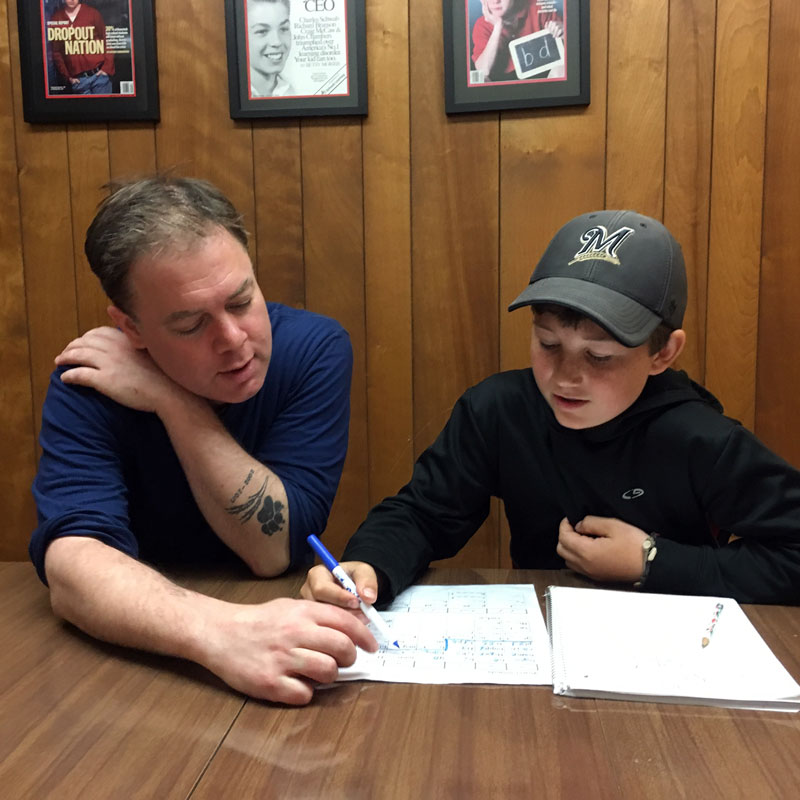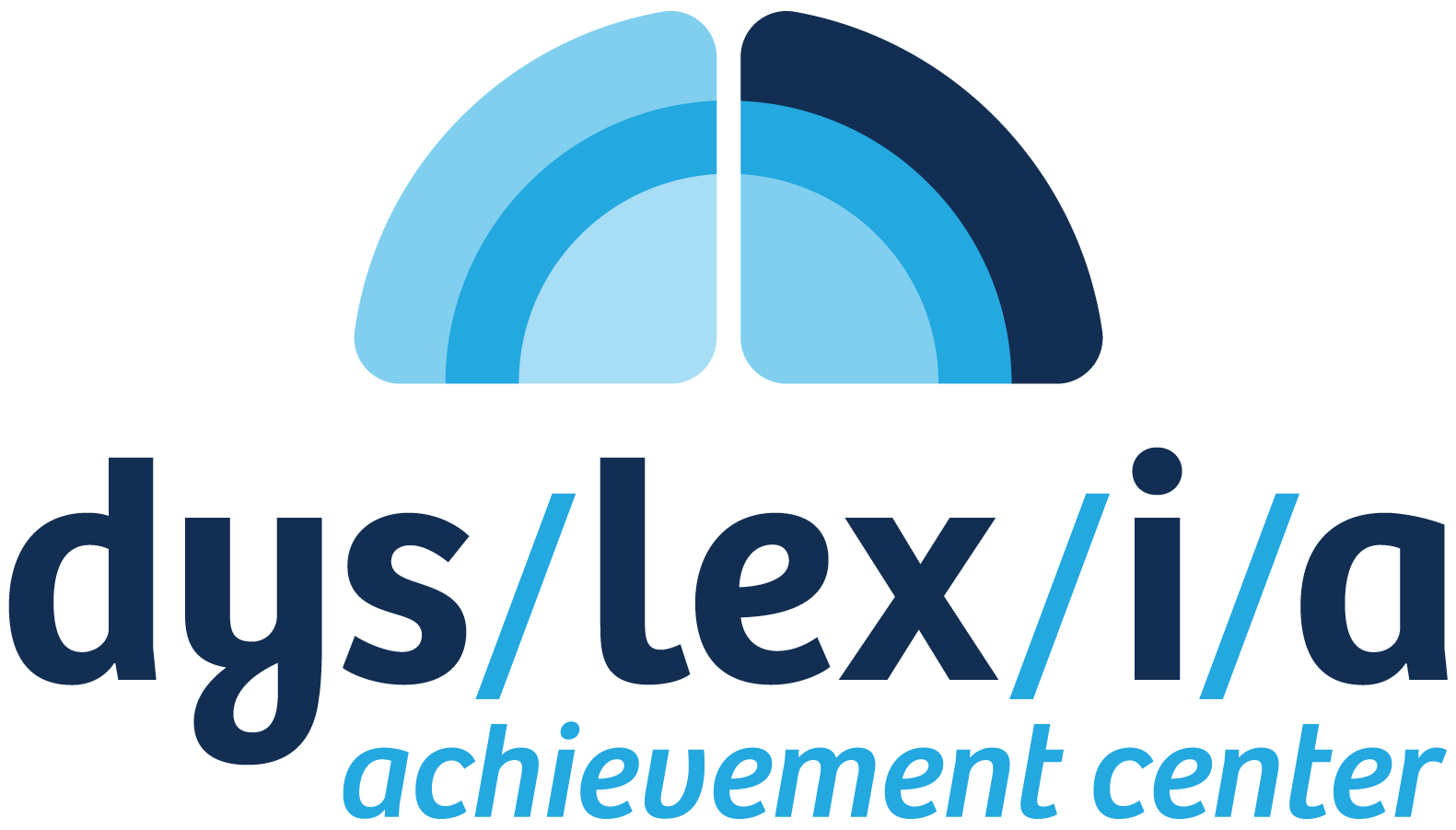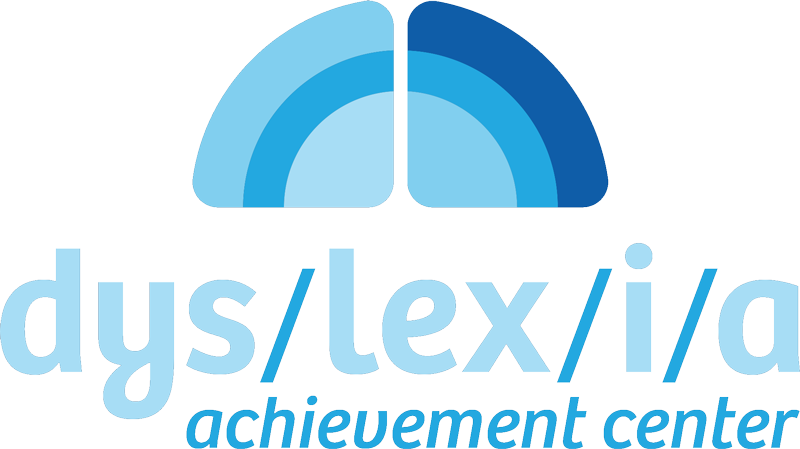About Dyslexia

What is Dyslexia?
Dyslexia is a learning difference that is neurobiological (in the brain). Dyslexia can impact different areas of reading, writing, spelling, and comprehension, and is far more than just flipping letters. It affects every student differently. It is possible for a student to have dyslexia and still be able to read, especially if they have found their own strategies to do so. However, they can still benefit from further instruction, as they can often reach a point where they cannot overcome their dyslexia on their own. Our students are very smart and have developed many strategies to get through school and life. There is a range of abilities in a student with dyslexia, some cases are mild, and some are severe.
“Dyslexia is a specific learning disability that is neurobiological in origin. It is characterized by difficulties with accurate and/or fluent word recognition and by poor spelling and decoding abilities. These difficulties typically result from a deficit in the phonological component of language that is often unexpected in relation to other cognitive abilities and the provision of effective classroom instruction. Secondary consequences may include problems in reading comprehension and reduced reading experience that can impede growth of vocabulary and background knowledge.”
Dyslexia is included as a Specific Learning Disability in this DSM-5 (Diagnostic Statistical Manual-5th edition), the reference for cognitive, emotional, and psychological disorders. As such, it is covered by The Americans with Disabilities Act. Dyslexia is usually inherited. It is lifelong, it cannot be “cured”, although it can be remediated over time with correct instruction and accommodations.
Dyslexia can impact one or many of the following areas:
- Difficulty with phonemic awareness (hear, identify, and manipulate phonemes—smallest sounds in a word).
- Difficulty with phonics (correlating sounds with letters).
- Difficulty with learning to decode (break down printed words into speech).
- Difficulty learning to spell (Orthography) (write or name letters that form a word in the correct sequence).
- Difficulty with Comprehension (understanding what the words or sentences mean).
- Difficulty with Orthographic Mapping (formation of the letter-sound connections to bond spelling, pronunciations, and meanings of specific words to memory).
Achieving Results
Best results are attained for a student with dyslexia when two circumstances occur: Accommodations and Specialized Instruction such as The Science of Reading or Orton Gillingham.
A student with dyslexia must ultimately build skills necessary for reading, writing, and spelling competently. Students with dyslexia benefit from learning the English language in detail, mastering the sound/symbol correspondences, syllable patterns and this structure of our English writing system (orthography). The student benefits when the instruction is provided in a multisensory way, relying upon not just one or two neural pathways for learning, but several simultaneously. This is known as the Science of Reading or Orton Gillingham.
A student with dyslexia needs accommodation in the classroom. Common methods of supporting the student’s needs include extra time on assignments and tests, assistive technology, and alternative means to demonstrate knowledge of the subject matter without relying upon reading, writing, or spelling to do so. Having math facts and a calculator available for math problems to help students show their knowledge of the concepts is important. A program that reads to a student is an example of one type of assistive technology that may benefit a student in higher grades to keep up in difficult subjects while getting specialized instruction. Another accommodation is taking tests in a quiet area without distractions and being able to take breaks during a test. This accommodation helps with fatigue level while doing reading or writing tasks or math problems. Getting extra time on a test to read the questions multiple times to be able to comprehend the question. Or being able to demonstrate the content in a different way. Getting notes from the teacher or a classmate to be able to listen to the content during class. Being able to type and use spell check during essays or tests, or being able to use a dictionary during an essay test is another accommodation.
Some diagnoses that commonly occur along with dyslexia include ADHD/ADD, autism, language processing disorders, dysgraphia (writing), dyscalculia (math), dyspraxia (coordination), and other learning differences. These co-diagnosis can impact how a student learns. They can occur together, but can also show up independently.
Executive function is a set of mental skills that include working memory, flexible thinking, and self-control. Executive functioning can be impacted with or without a diagnosis of ADHD/ADD in students diagnosed with dyslexia. Executive functioning can impact learning in a variety of ways and if not addressed, may slow progress with dyslexia intervention. Executive functioning is not fully developed until the mid twenties. We use these skills every day to learn, work, and manage daily life. Trouble with executive function can make it hard to focus, follow directions, and handle emotions, prioritizing starting and staying on a task, organizing, planning, understanding other points of view, among other things. Read this article to learn more.



